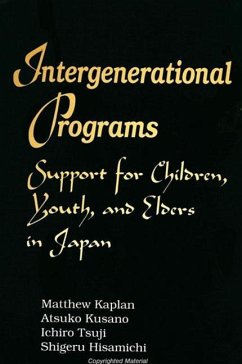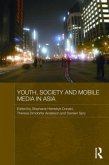The "Intergenerational programming concept", now garnering increased interest in America, has been applied to Japanese society as a strategy for maintaining intergenerational and cultural continuity in the face of social and demographic changes. While Japan is known for its enduring and resilient family structure which provides support for people of all ages, the country's growing aged population, combined with a trend away from three-generation families and changing social values, exposes a need for new mechanisms beyond the family to promote intergenerational communication, support, and cultural continuity. The authors identify a rich geographically diverse set of intergenerational programs and activities that serve a wide range of human and community development objectives. Beyond promoting intergenerational understanding among participants, these initiatives function to help people to pursue their educational objectives, arts and recreation interests, desired states of health and welfare, environmental preservation and community development goals, and religious and spiritual well-being. Intergenerational endeavors constitute an integral approach for supplementing familial support systems and maintaining social cohesion in Japan as it enters the twenty-first century.
Hinweis: Dieser Artikel kann nur an eine deutsche Lieferadresse ausgeliefert werden.
Hinweis: Dieser Artikel kann nur an eine deutsche Lieferadresse ausgeliefert werden.








